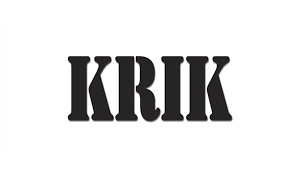
10. Accuracy
10.1. Processes for Ensuring Accuracy
The Media Outlet shall have internal rules with a systematic editorial process to make sure that the content is accurate and the Editorial Guidelines are adhered to. This may include the verification process for the content and the role of editorial oversight.
Do you have internal rules and a systematic editorial process to ensure the accuracy of your content?
YesIf you want to publish additional information, please provide it here.
Multiple Editing Stages: After the journalists (in cooperation with the investigative editor who guides them during the investigation) write the first version of the story, it goes to the editor who initially edits it and provides feedback and comments. After the suggestions are incorporated and facts are checked, the story goes to the editor-in-chief. Having at least two editing stages for investigative stories ensures that the content is thoroughly reviewed and fact-checked. This helps maintain accuracy and credibility.
Involvement of Editors and Editor-in-Chief: The involvement of editors and the editor-in-chief at different stages ensures that the story is not only factually accurate but also meets our standards for style, tone and overall message. This is how we distinguish ourselves in the media landscape and ensure that we stay true to our mission and vision.
Detailed Fact-Checking Process: The detailed fact-checking process for investigative stories is crucial, as it helps verify every claim made in the story or dismiss it if the evidence does not support it. This is essential for maintaining credibility and avoiding misinformation, as well as for litigation-proofing the organization and our journalists.
Finalization Process: The finalization process, where the editor-in-chief determines the title and selects accompanying visuals, adds a finishing touch and a layer of professionalism while ensuring that the story is presented in the most impactful way possible. We also pride ourselves with superior graphic designs and illustrations that we develop in-house.
For the daily or feature content, once journalists completes a newspiece, it is then edited by the editor (two editors are in charge of editing the daily news for KRIK portal and Raskrikavanje). In some cases, the editor-in-chief goes through the texts once more before final publication.
Do you have internal rules and a systematic editorial process to ensure that the Editorial Guidelines are adhered to?
YesDo you have a verification process for content and the role of editorial oversight?
Yes10.2. Process Review
There shall be a mechanism for the periodic review of the editorial processes to ensure that they are in compliance with the Editorial Guidelines and that the accountability processes are effective and being used to support them.
Do you have a mechanism for periodic review of the effectiveness of the implementation of your Editorial Guidelines in your editorial processes?
YesIf you want to publish additional information, please provide it here.
Is your accountability mechanism (internal or external) subject to periodic review?
Yes10.3. Statistics and External Content
Statistics and external photographs/video/audio content should be sourced and verified.
Do your Editorial Guidelines require that statistics should be sourced and verified?
YesDo your Editorial Guidelines require that external photographs/video/audio content should be sourced and verified?
YesIf you want to publish additional information, please provide it here.
10.4. Identification of Journalists, Agencies
Principle and secondary authors should be identified, or if not, then recorded via publishing mechanisms, so that this information can be accessed if there is a query. This includes any news agency material subscribed to by the Media Outlet. Any details of individuals should be subject to the legal requirements of data protection and security considerations.
Are the Individual Journalists (including external sources) identified, for example through a byline, or recorded in publishing mechanism so that this information can be accessed?
YesIs all News Agency material used by the Media Outlet recorded and tracked?
N/A10.5. Location Reporting
In news reporting, it should be clear to any reader or audience where a report is being written from, and if it includes location reporting. Where location reporting is constrained due to the mechanism or conditions of the facilitation this should be identified, e.g. an embed with an official army or independent travel with local militias. This may also include occasions where the reporting has been facilitated by a commercial, NGO or governmental organisation and labelling is necessary for transparency.
Is location reporting identified in your content?
YesDo your Editorial Guidelines ensure that any constraint on location reporting be explained in the report or in the context of its publication?
YesDo your Editorial Guidelines require transparency where a location report has been facilitated by an external body?
Yes10.6. Automatically Generated Content
News content generated, wholly or partly, automatically by means of algorithmic processes (such as but not limited to text generating systems, bots or artificial intelligence) shall be clearly indicated.
Do you publish any content that is automatically generated?
No10.7. Algorithmic Dissemination and Curation
A Media Outlet shall indicate its policy on the use of algorithms for news content dissemination or curation and its adherence to best practice requirements from regulatory or advisory bodies.
Do you use any algorithms for the dissemination or curation of content?
No10.8. Treatment of Explicit Content
Editorial processes shall ensure the ethically appropriate treatment of violent and explicit content, of content which features children or other vulnerable people, and of live content.